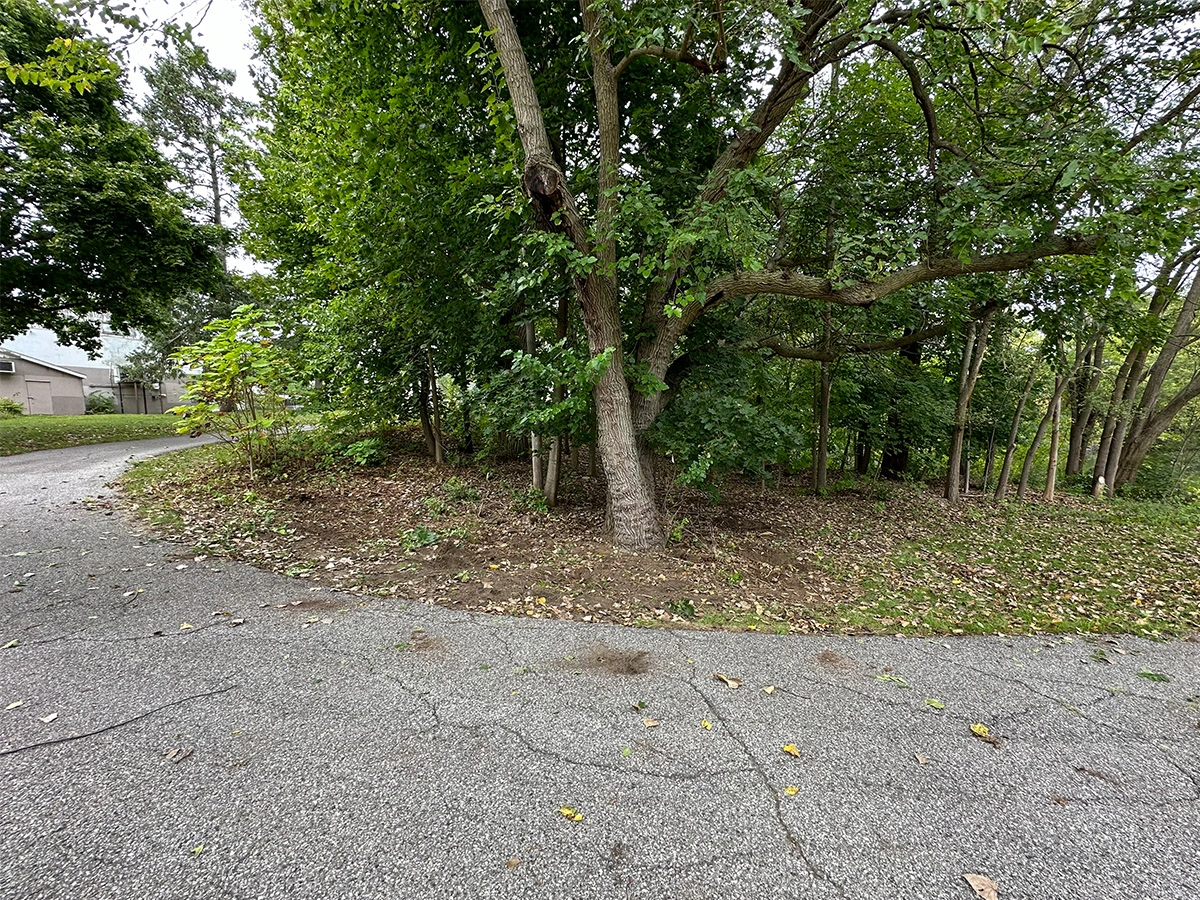2024 marked Truma North America’s first full year as a corporate sponsor of the City of Elkhart’s Adopt a Park program. Our initial goal was to give back to our community by helping maintain High Dive Park. When we talk about maintaining and conserving outdoor spaces, the first thing that might come to mind is picking up trash but there is an equally important form of clean-up that isn’t as easy to spot: invasive plant removal.
In fact, our team has learned quite a bit about the importance of removing invasive plants over the last year. In particular, we have been working to help the Parks and Recreation grounds crews remove large patches of Japanese Honeysuckle.
You have probably seen Japanese Honeysuckle before as it is a fairly popular decorative plant for landscaping because it is lush and fast-growing. These traits that make it so popular in private gardens are the same traits that make it harmful when it gets into parks and forests. Because it grows so densely and spreads so fast, it crowds out native plant life and prevents it from being able to grow and thrive.
Take this wooded section of High Dive Park. This picture was taken in November 2023. Almost all of the undergrowth you see here that still has green leaves is Japanese Honeysuckle. Because its leaves stay green so much longer than native plant species, it becomes much easier to see in the fall.


On that first visit, we had a group of about 20 volunteers who helped cut back and uproot honeysuckle. While it spreads easily, it does not have a very deep root system. Young plants can be pulled by hand and the larger clumps are relatively easy to dig out with a root puller or shovel. We were pleased to see we had made a noticeable difference in just a couple of hours. We revisited the same part of the park in September of 2024 and could see a much happier and more diverse plant ecosystem in the undergrowth. But there was still plenty of work to be done, particularly on the steeper banks around the High Dive Park pond.

If you are interested in learning more about invasive species that might be present in your area, the US Department of Agriculture has a helpful database with lots of information. This is a helpful resource if you are wanting to help with conservation efforts in your area, or even if you just want to avoid including invasive species in your own garden. Another easy way you can help raise awareness about invasive species and prevent their spread is by reporting them when you see them. The University of Georgia has a reporting tool for this exact purpose https://www.eddmaps.org/
